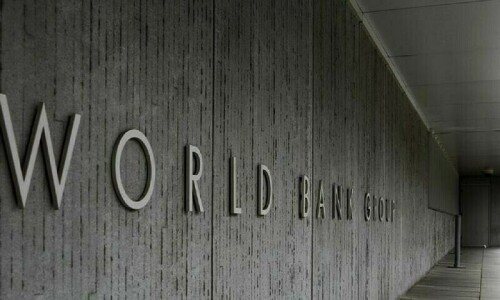ISLAMABAD: Two new reports released by the World Economic Forum (WEF) have warned businesses to act now to address growing climate risks or face steep financial losses, saying that the delay could see up to seven per cent of annual earnings wiped out by 2035, an impact akin to Covid-19 level disruptions every two years.
Extreme heat and other climate hazards are expected to cause $560 billion to $610bn in annual fixed asset losses for listed companies by 2035, with telecommunications, utilities, and energy companies most vulnerable.
Companies in energy-intensive sectors that fail to decarbonise face mounting transition risks as global climate regulations tighten, with carbon pricing alone potentially slashing up to 50 per cent of earnings by 2030.
Leading scientists, including Johan Rockstrom of the Potsdam Institute for Climate Impact Research, warn that five Earth systems are nearing irreversible tipping points.
Earth systems, such as ice sheets, ocean currents and permafrost, are interconnected natural processes that regulate the planet’s climate, sustain ecosystems and provide vital services like carbon storage, water filtration and temperature stabilisation that enable societies and economies to thrive.
WEF warns climate hazards could slash firms’ earnings 7pc by 2035
These include the potential collapse of the Greenland and West Antarctic ice sheets, which are on track to unleash up to 10 metres of sea-level rise and worsen food insecurity for at least half a billion people.
The reports, “Business on the Edge: Building Industry Resilience to Climate Hazards”, produced with support from Accenture, and “The Cost of Inaction: A CEO Guide to Navigating Climate Risk”, produced with support from Boston Consulting Group (BCG), provide a roadmap for companies to navigate climate risks and unlock long-term value through decarbonisation, safeguarding nature, adaptation and building resilience.
These risks, combined with cascading impacts on supply chains and communities, underscore the critical need for resilience strategies.
Published in Dawn, December 12th, 2024














































